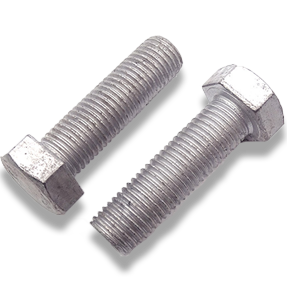

Stainless Steel Self-Drilling Screws for Metal Applications and Their Advantages
Sep . 28, 2024 07:09 Back to list
Stainless Steel Self-Drilling Screws for Metal Applications and Their Advantages
The Versatility and Strength of Stainless Steel Self-Tapping Metal Screws
Stainless steel self-tapping metal screws are a crucial component in various industries, known for their ability to create their own pilot holes while providing a strong and durable fastening solution. These screws are particularly valuable in applications where corrosion resistance is necessary and where materials may be subjected to various environmental stressors. From construction to automotive applications, the advantages of stainless steel self-tapping screws make them an essential tool for both professionals and DIY enthusiasts.
The Composition and Properties of Stainless Steel
Stainless steel is an iron alloy, typically containing chromium, which imparts resistance to rust and corrosion. This makes stainless steel self-tapping screws ideal for outdoor applications or in environments where moisture is prevalent. The alloying elements not only enhance the mechanical properties of the screws but also improve their appearance. Due to their sleek, shiny finish, stainless steel screws contribute to aesthetic appeal, especially in visible fixtures or architectural features.
The specific types of stainless steel used in the manufacturing of self-tapping screws are often 304 and 316 grades. Grade 304 is the most commonly used stainless steel, while grade 316 offers enhanced corrosion resistance, making it suitable for marine applications or areas exposed to harsh chemicals. The choice of grade depends on the specific needs of the project and environmental conditions.
Advantages of Self-Tapping Screws
Self-tapping screws are designed to cut their own threads into the material they are driven into, eliminating the need for pre-drilling holes. This feature significantly speeds up installation times, which is beneficial in both industrial and individual applications. Furthermore, they provide a tight fit that can sustain high levels of torque, making them reliable under fluctuating loads and stresses.
The design of self-tapping screws varies widely, with options including different head styles (such as Phillips, flat, or hex) and thread types. This versatility allows users to choose the best screw for their specific needs, whether they're dealing with metal, wood, or plastic materials. In addition, self-tapping screws are often coated with protective materials to further enhance their resistance to corrosion and wear.
stainless steel self tapping metal screws

Applications in Various Industries
Stainless steel self-tapping metal screws are used in numerous sectors, including construction, automotive, marine, and electronics. In the construction industry, they are commonly employed for securing stainless steel or aluminum panels, fastening metal studs, and anchoring components in place. The durability and resistance of these screws allow for longevity, minimizing the chances of failure over time.
In the automotive sector, stainless steel self-tapping screws are used for assembling car body components, making them essential for both assembly lines and repairs. Their resistance to rust and corrosive substances encountered in automotive environments ensures that the integrity of the vehicle remains intact over its lifespan.
Marine applications leverage the enhanced corrosion resistance of certain grades of stainless steel, specifically 316, to resist the harsh effects of saltwater. Whether for constructing boat parts or building docks, self-tapping screws provide reliable fastening solutions that withstand the test of time.
Environmental Considerations
An often-overlooked advantage of stainless steel self-tapping screws is their eco-friendliness. Unlike some other materials, stainless steel is 100% recyclable, contributing to a more sustainable approach in hardware manufacturing. By opting for stainless steel products, industries can reduce their environmental footprint and promote sustainability.
Conclusion
Stainless steel self-tapping metal screws represent an excellent fastening solution across a wide array of industries. Their innate corrosion resistance, rapid installation capabilities, and versatility make them indispensable tools in modern manufacturing and construction. As industries continue to evolve and demand stronger, more resilient materials, the prominence of stainless steel self-tapping screws is sure to grow, paving the way for innovative applications and sustainable practices in the years to come. Whether you are a professional in the field or a DIY hobbyist, understanding the benefits of these fasteners can significantly enhance your projects’ efficiency and durability.
Latest news
-
Hot Dip Galvanized Bolts-About LongZe|High Strength, Corrosion Resistance
NewsJul.30,2025
-
High-Strength Hot Dip Galvanized Bolts - Hebei Longze | Corrosion Resistance, Customization
NewsJul.30,2025
-
Hot Dip Galvanized Bolts-Hebei Longze|Corrosion Resistance&High Strength
NewsJul.30,2025
-
High-Strength Hot-Dip Galvanized Bolts-Hebei Longze|Corrosion Resistance&High Strength
NewsJul.30,2025
-
Hot Dip Galvanized Bolts-Hebei Longze|Corrosion Resistance&High Strength
NewsJul.30,2025
-
Hot Dip Galvanized Bolts - Hebei Longze | Corrosion Resistance, High Strength
NewsJul.30,2025

